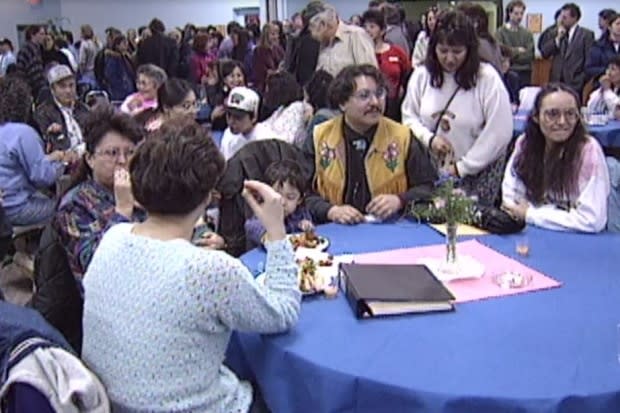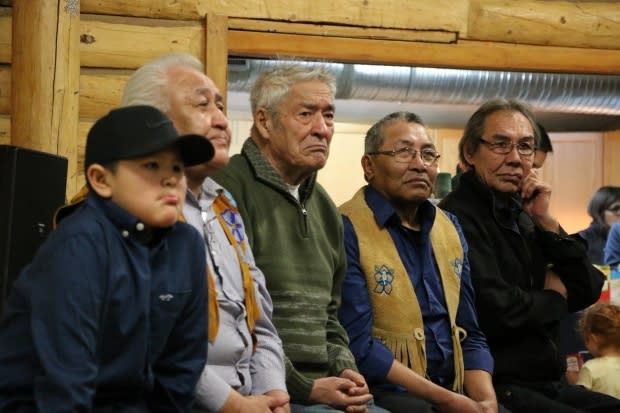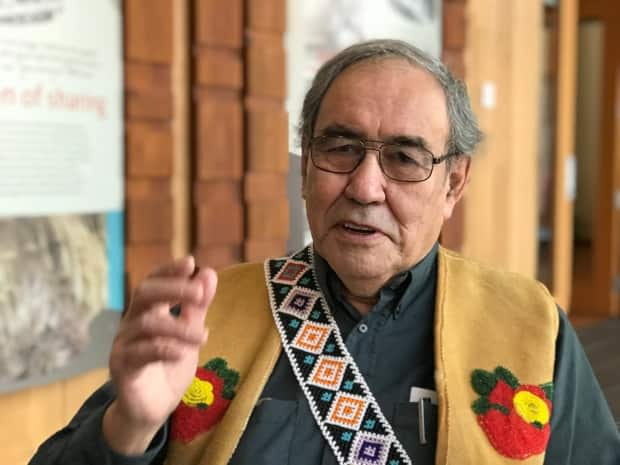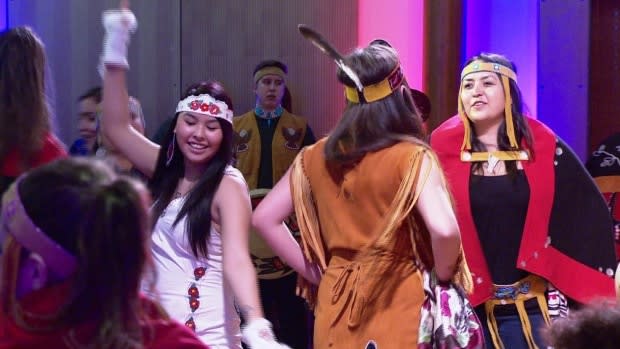Yukon First Nations' 'leading-edge' self government agreements, 25 years in
Twenty-five years in, and the work is ongoing.
That's how some are describing the implementation of modern treaties among Yukon First Nations. Friday marked the 25th anniversary of final and self government agreements beginning to come into effect.
Those agreements outline First Nations' rights within their traditional territories.
For the Champagne and Aishihik First Nations, the Teslin Tlingit Council, the Vuntut Gwitchin First Nation and the First Nation of Na-Cho Nyak Dun, Feb. 14, 1995 was the day they started implementing their treaties.
Seven other Yukon First Nations would sign their final and self government agreements in the following years, and three have not yet reached any agreement with the federal and territorial governments.

CBC Yukon host Leonard Linklater spoke to several people this week who were involved in negotiations in the 1990s. They talked about how the agreements came to be, and where things stand today.
Comments have been edited and condensed for clarity.
Shirley Adamson, former community negotiator for Ta'an Kwäch'än Council: "We were the original governments of this territory pre-contact, and the Indian Act had interfered with all of that and took the authority away from the traditional governments and the traditional government leaders, many of whom were matriarchs. And basically we placed all of our traditional laws with the Indian Act which actually wasn't an Act that was in the best interests of Aboriginal people.
"So a lot of people were speaking about how our living conditions were so terrible, we couldn't practice the traditions of our ancestors. We were essentially homeless on our homelands. We couldn't hunt, we couldn't fish, unless we were either Status Indians or alternatively we went out and bought hunting and fishing licences. A lot of people that weren't captured by the Indian Act privileges were actually being criminalized for practicing the way of life of their ancestors since time immemorial. We were losing a lot of control over our children, our children were being taken out of our homes and out of our communities.
"So all of this came together finally with people saying we need to look after ourselves better than those who have the fiduciary obligation to look after us are doing for us right now."
Robert Bruce, Jr., former chief of the Vuntut Gwitchin First Nation: "I was thinking we were signing to break away from the Indian Affairs to have our own self-government like our elders had in the past — and that was my thought of it. So that was the key for me.

"Chiefs before me did a lot of work on it and it was sometimes a tough negotiation to make it right. And I think we got it right and we move forward with it."
Paul Birckel, former chief of the Champagne and Aishihik First Nations: "I was thinking we were signing a good agreement, that would give a lot of hope and ... that would help most of our people.
"I was very, very emotional at that time because I was thinking back on all the work that was done and all the number of people that worked on it and have passed away.
"I didn't have no trouble signing the agreement because we needed something, some kind of an agreement done to help our people."

Tim Koepke, former federal negotiator: "This wasn't a one time land-and-cash real estate deal. This was meant to be an ongoing, evolving improvement of relationships, and it's all about relationships.
"Yukon is considered to be leading-edge and it was at the time. And a lot of the policies that are included in comprehensive claims in other parts of Canada, notably British Columbia, derived a lot of their good features from those things that we adopted and negotiated in Yukon."
Shirley Adamson: "People still expect negotiations to be ongoing today. There is a lot that still needs to be talked about. We still haven't seen major changes.
"A lot of the commitments that were made in the Umbrella Final Agreement have not been dealt with in a timely manner. The other governments are subject to change, the policies of whichever government is in power in the day sometimes led us to spend an incredible amount of time defending our rights."

Paul Birckel: "I think the only problem we have is that interpretation of the agreements by our government[s] may not be what we had agreed to at the table. So I mean, some of those things probably still have to be ironed out."
Tim Koepke: "Canada's had public government now for one hundred and fifty three years. Yukon's had it for 120 years. Pick up the newspaper any night and you're not convinced that public governments have it right yet. So we have to be a little bit patient while First Nation governments build capacity, build partnerships, learn to cooperate, and others in the non-aboriginal community also learn what partnerships are all about.
"The work will never end, if it goes the way it should."
Paul Birckel: "The agreement wasn't just for the First Nation people, but also for people from the whole economy. Because all our boards and committees were all set up that none of our First Nations or the white people in the territory had kind of any say in what was happening in government.
"So it brought a lot of people into it, not only our own people but everybody — and I think we are better for it now.
Shirley Adamson: "I spend a lot of time working with youth. I do a lot of lectures at the college. I'm always surprised at how few, particularly First Nation individuals, are not fully aware of the land claims, and the potential of the land claim agreements that govern their lives or influence their lives today.

"I think we need to deal with that. I think we need to deal with the fact that very few architects, including the chiefs of the day and the negotiators, are brought in to speak to the spirit and intent of the agreements because I don't think anybody knows better than them what the spirit and the intent are. So we have to do that."
Robert Bruce, Jr.: "I want to say today that we have about 15 young people who are at the college speaking their language, and their teachers should be very proud of that. And I'm proud of them all for taking this task.
"This is what the land claim is all about — to go back to our culture where elders used to be, before. So now that we're having these young people doing their language ... that will help them move forward in life."


